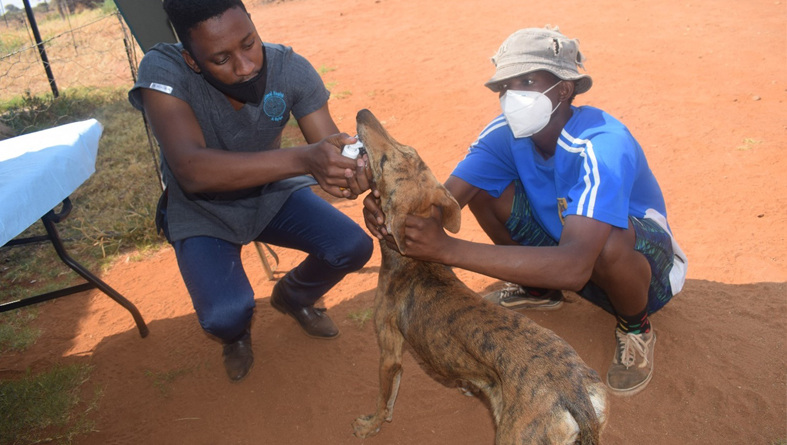Limpopo Department of Agriculture and Rural Development (LDARD) in partnership with some private veterinary clinics and welfare organisations such as Thanda Inja Project continues highlighting the importance of education and awareness to prevent rabies disease across Limpopo province.
LDARD initiated community involvement by allowing them to bring their pets for vaccination, treating of wounds and sterilisation at various Veterinary Animal Health Clinic to enhance the control of the spread of disease.
Communities in and around Strydskraal in Sekhukhune District have benefited by the initiative, where many brought their pets patients to get free health screening and vaccination at Stydskraal Veterinary Animal Health Clinic.

Moses Ramushu from Wonderboom thanked the department for bringing the initiative on their doorstep. His five puppies have received free injection for body fevers and deworming.
Rabies is a preventable viral disease most often transmitted through the bite by an animal infected by rabies disease. The rabies virus infects the central nervous system of mammals, ultimately causing disease in the brain and death. Rabies virus is transmitted through direct contact (such as through broken skin or mucous membranes in the eyes, nose, or mouth) with saliva or brain/nervous system tissue from an infected animal.
People usually get rabies from the bite of a rabid animal. It is also possible, but rare, for people to get rabies from non-bite exposures, which can include scratches, abrasions, or open wounds that are exposed to saliva or other potentially infectious material from a rabid animal.
If one is in contact with any wildlife or unfamiliar animals, particularly if bitten or scratched, one needs to contact a healthcare or public health professional to determine the risk for rabies or other illnesses. Wash any wounds immediately with soap and running water and see a healthcare provider.
South Africa is committed to the global “Zero by 30” goal – For zero human deaths due to dog mediated rabies by 2030. This can be achieved through adequate vaccination of dog (and cat) populations, as well as provision of treatment to humans that have been exposed to rabid animals.


